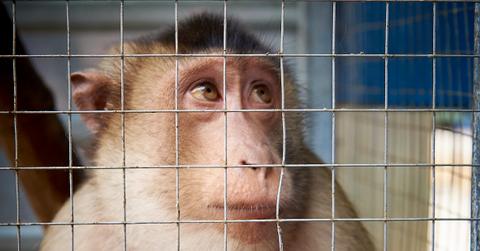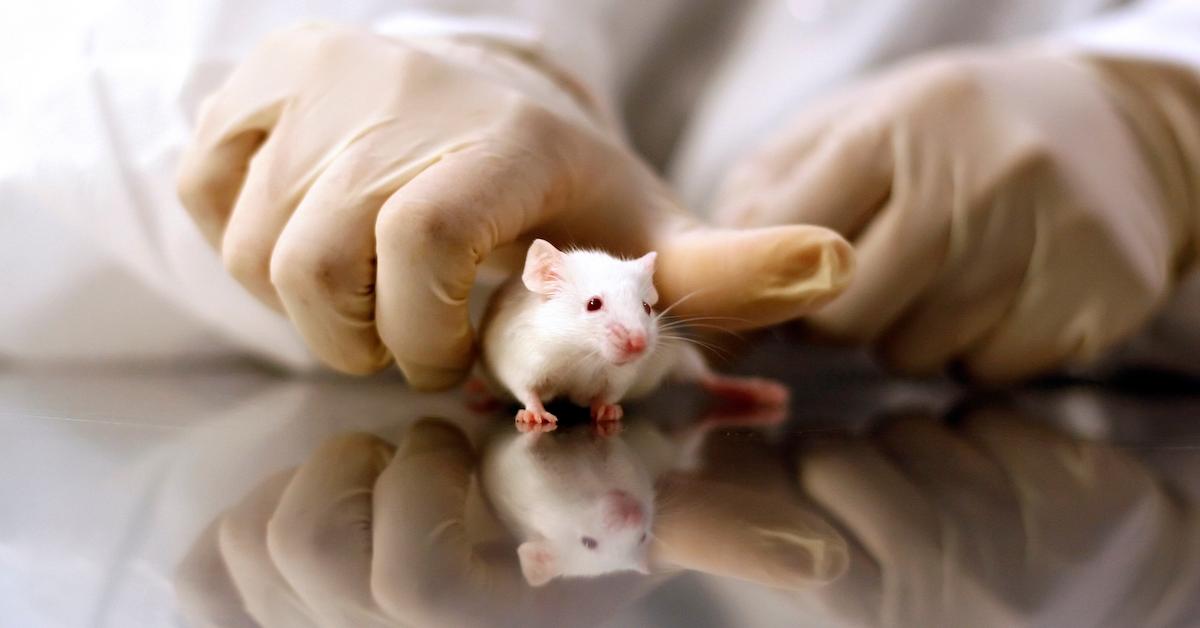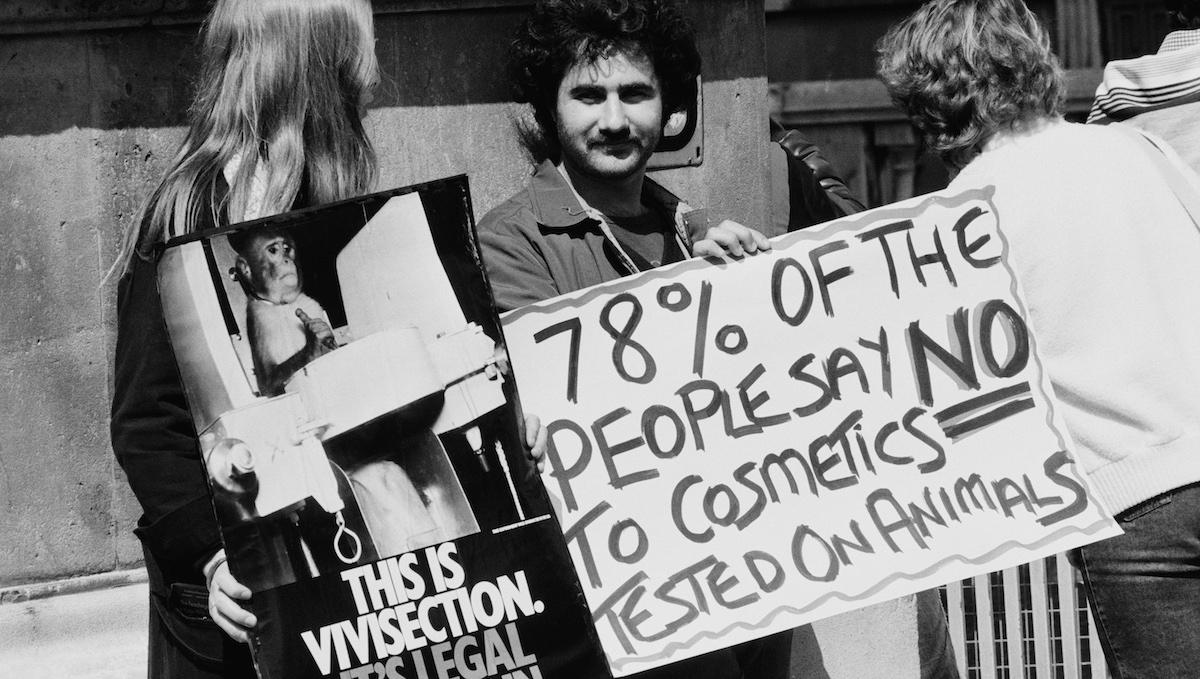Animal Testing Is Still Required for Drugs and Certain Cosmetics — What Are the Pros and Cons?
Published Jan. 6 2023, 11:37 a.m. ET

Monkeys are commonly used in lab tests.
Whether it's done for cosmetics, medication, or anything in between, animal testing is a cruel practice, and one that animals can never consent to. However, testing on animals is required for all new medications used in the U.S., and is still required in China's cosmetics industry in many instances.
Keep reading for a look into the pros and cons of animal testing, aka vivisection, both in the pharmaceutical industry and the cosmetics industry.
For cosmetics, there are endless cons of animal testing.
When animals are used as test subjects for cosmetics, they are forced to endure a number of painful procedures in laboratories. These tests include injecting animals with products; dropping products into animals' eyes; forcing animals to eat cosmetic ingredients; and having compounds rubbed into animals' skin constantly, for several months at a time, as per Cruelty Free International. This is to see how extreme exposure to certain products or ingredients affect the animals.
Animals used in laboratories are typically killed at the end of testing, as they can no longer be used for other lab tests. Most commonly, the animals used in these tests are guinea pigs, mice, rats, and rabbits, as per Fine. However, dogs and cats are sometimes used, too.
Additionally, these tests are not even accurate indicators of how humans will respond to chemicals, according to the RSPCA.

And on top of all that the animals themselves have to go through, there are cons for those administering these animal tests. For one thing, animal testing is certainly more expensive than other methods of testing cosmetics, since labs must purchase or breed animals, and provide them with food and water.
Not to mention, the emotional effects that the people working in the labs must go through — having to torture animals every day and then slaughter them at the end of the process — can't be easy.
In modern times, the only pros to animal testing for cosmetics is for the manufacturers.
The only pro to testing cosmetics on animals is for those profiting off of the testing. The breeding facilities that breed and sell animals to labs, as well as the labs that conduct the tests, are all making money off of this unethical industry.
And of course, the manufacturers and brands selling the tested products will benefit from animal testing, as it means they can sell their products mainland China. In 2012, when China revealed that animal testing was now compulsory to sell in the country, many brands had to make a choice: continue to sell their products in China, or retain their cruelty-free status, as per Ethical Elephant.
Over the past decade, China has loosened some of these requirements, but by and large, animal testing for cosmetics is still compulsory in many instances in China. So basically, cosmetics companies benefit from animal testing as it allows them to sell their products to a wider audience.

Two protesters attend a demo pro animal rights against vivisection, in London, on May 9, 1984.
Animal testing for the medical and pharmaceutical industries has so many cons.
Similar to the cosmetics industry, the medical and pharmaceutical industries conduct painful tests on animals. In the U.S., animal testing is actually required to be conducted before a new drug can hit the market.
"Regulatory bodies around the world, including the U.S. Food and Drug Administration, require all potential new medicines undergo safety studies in animals before beginning clinical trials in people," according to Pfizer.
The animals commonly used in drug trials include cats, dogs, pigs, monkeys guinea pigs, hamsters, mice, rats, and rabbits, as per the Foundation for Biomedical Research.
Tests conducted on these animals include: force-feeding them the drug; exposure to drugs or diseases; genetic manipulation; ear-notching or tail-clipping for identification; long periods of physical restraint for observation; depriving them of food or water; various surgical procedures; burning or otherwise injuring animals to see how they heal; and stressful behavioral experiments, as described by Humane Society International.
Like with cosmetic animal testing, the workers in these labs may suffer emotional effects or even PTSD from having to inflict so much pain on innocent animals.
As noted by PETA, the National Institutes of Health has reported that of all drugs that are deemed safe in animal tests, about 95 percent them fail during human clinical trials, proving that animal tests are not effective.
The pros of animal testing for medical use are few and far between.
Those who benefit most from the law requiring animal testing for new drugs are those who profit off of it, such as the companies making the drugs and the labs conducting the testing.
And as long as animal testing for drugs is legally required in the U.S., those who depend on medication are benefiting from this process, since it means they can get the drugs they need. As of 2021, approximately 66 percent of adults take prescription drugs in the U.S., as per the Health Policy Institute via SingleCare.
However, it's clear that animal tests for drugs are not that accurate.
As long as the U.S. Food and Drug Administration (FDA) continues to legally require animal testing for new drugs, numerous people are unwittingly supporting the animal testing industry. However, don't let that stop you from taking medication that you have been prescribed. We do not live in a vegan world, and until animal testing is no longer required for medicines, this is our reality.
In the meantime, if you'd like to boycott animal testing, make sure to only purchase cruelty-free and vegan cosmetics, including makeup, skincare, sunscreen, shampoo, and more.